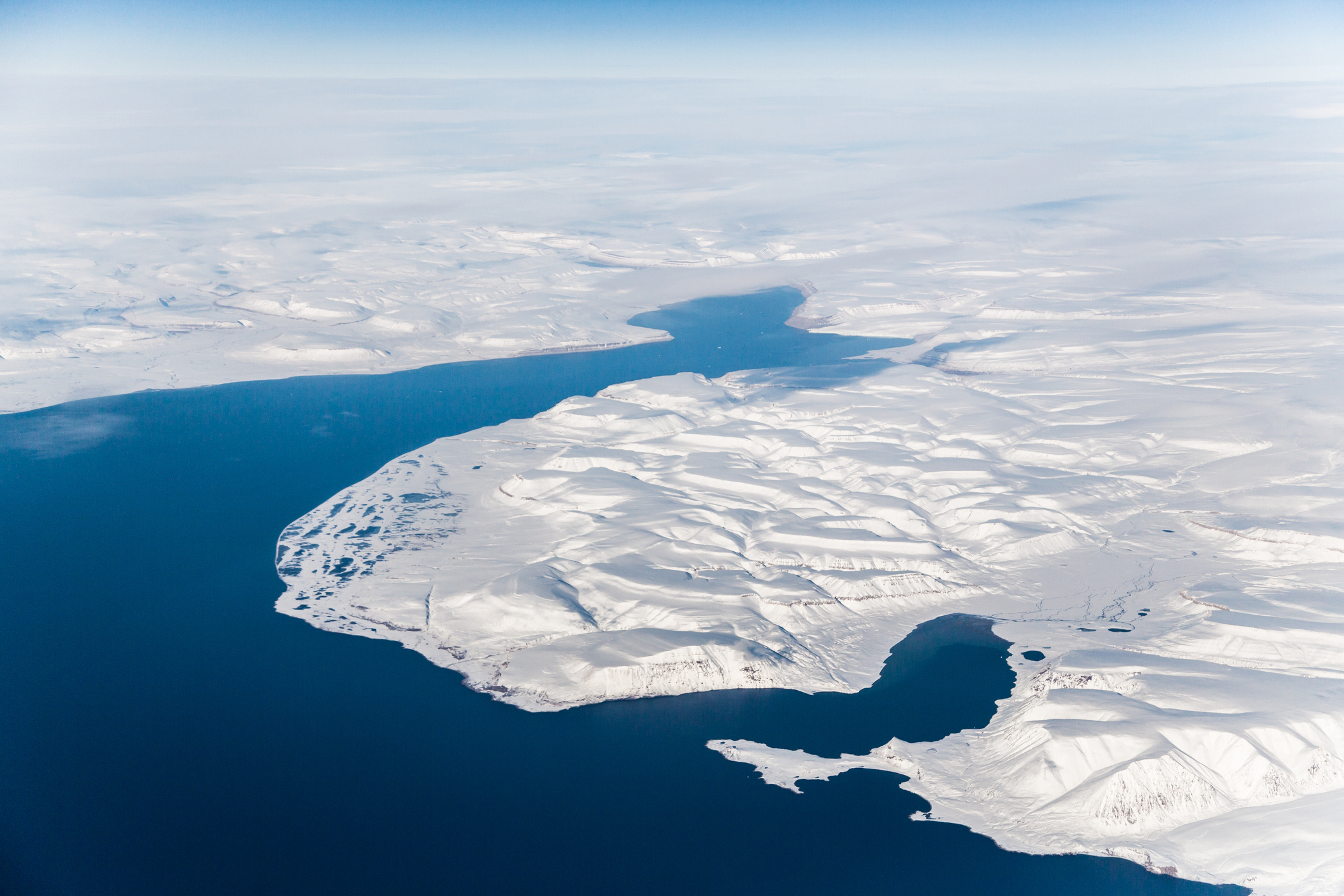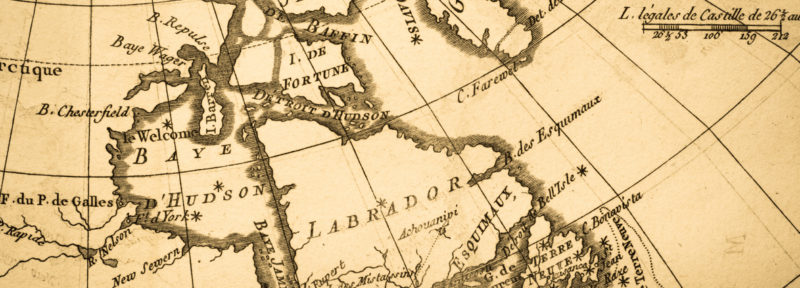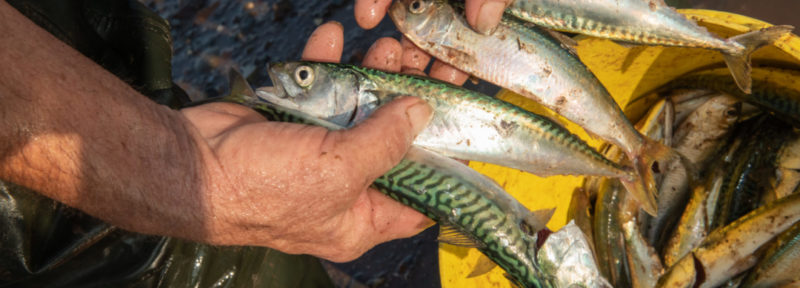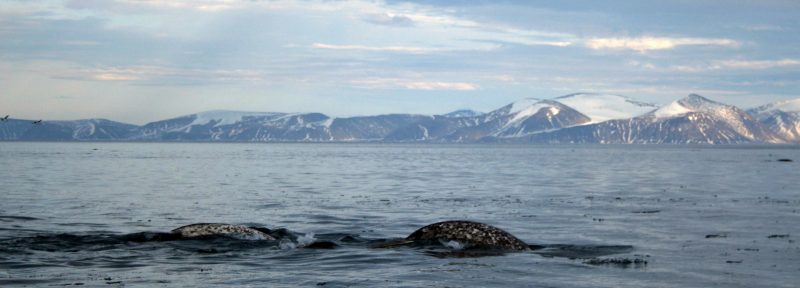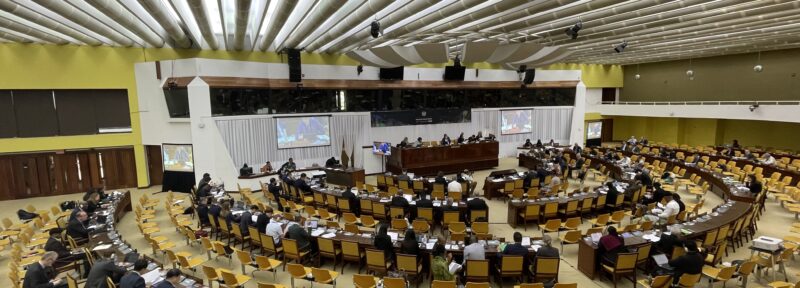How We Can Limit Fishing North of 72°N
Aerial view over Baffin Bay.
Crédit : Gfed
The waters of Baffin Bay north of 72°N latitude have never been fished. The availability of fish further south, where most of the fishing vessels come from, meant the fleet had no reason to go this far north; fleets seldom go looking for new grounds if the fishing is profitable and the stock healthy in traditional areas. The logistics of fishing this far north has also been a contributing factor. But while a number of reasons have contributed to the lack of fishing in northern Baffin Bay, only one has prevented it: the prevalence, until recently, of summer sea ice.
Although there was no legal impediment to fishing in this area, the environment prevented it and fishing did not occur. Even today, with climate change and the reduction of multi-year sea ice, it is still a risky venture. Ice conditions often prevent the fishing fleet from getting to the region until June at the earliest, and ships using fixed gear there are legally required to stop fishing by November 11. All fishing vessels must leave the area by December 31. However, difficult conditions have never been enough to stop fleets from moving into areas like northern Baffin Bay. Soviet trawlers once conducted massive fisheries just south of this area, supported by fuel bunkering ships and transport ships to bring provisions and take away product. If there is money to be made, the fishing industry will come.
For most of the past ten years, Oceans North has been advocating for a complete prohibition on industrial-scale commercial fishing in this area for all the reasons listed in the previous blog. Some in the fishing industry and their supporters have opposed this position on the grounds that the area might one day become an important fishing ground. While this may be true in some fashion, the only real way to take away a fishing opportunity from future fishers is to deplete the stock before they get a chance to fish it. Protecting an area from fishing now allows a future generation the opportunity to make a decision to fish or not fish; while fishing, history has mostly shown us, takes away the opportunity from future generations. Almost without exception in the Northwest Atlantic we have overfished to the point of collapsing stocks.
Nevertheless, the fishing industry makes a point that is worth reflecting on. As the ocean warms, the possibility of a northward movement of fish stocks may result in the area north of 72°N becoming an important and possibly necessary fishing ground. Of course, the northward migration of fish stocks is projected to be a decades-long process. With the Greenland halibut stock distributed from Baffin Bay in the north to the southern Grand Banks, the likelihood of anyone in the fishing industry living to see the stock vacate the area south of Baffin Bay is extremely remote, absent overfishing. The point, however, is that the permanent removal of an opportunity to fish north of 72°N is not supported by the fishing industry—and, upon reflection, may not be necessary.
There is a way to afford protection to the area north of 72°N and preserve the opportunity to fish: we can decide not to fish this area during the next fishing season. Every year, DFO hosts a species-specific advisory meeting where the Integrated Fishery Management Plan gets discussed and developed for the coming season. We can permanently place on the agenda an opportunity to discuss the seasonal closure of fishing north of 72°N. At this point we can decide if fishing is warranted north of 72. We can decide if fishing is not warranted north of 72. We can discuss why and why not. The opportunity to understand the implications of a fishery—the potential impact on non-target species like Greenland shark and narwhal, for example—and the relationship between an offshore fishery and a nearshore community-based fishery can be had. Deciding on a yearly basis to not fish avoids an argument over the occurrence of sensitive benthic areas, the need to avoid such areas and the implications for failing to meet DFO policies regarding the same. It has the added benefit of protecting the Marine Stewardship Council certification that is so important to the fishing industry in its marketing.
By just agreeing to not fish for one year, we can avoid the often fruitless discussion over a permanent closure. It forces us all to come to terms on an annual basis with the validity of the closure and the validity of arguments to permit fishing, without either action providing us with an outcome that we might all live to regret.

